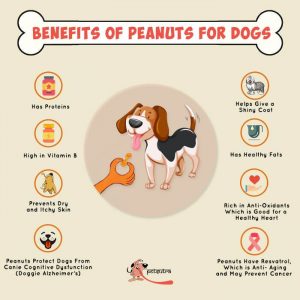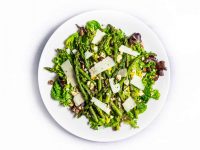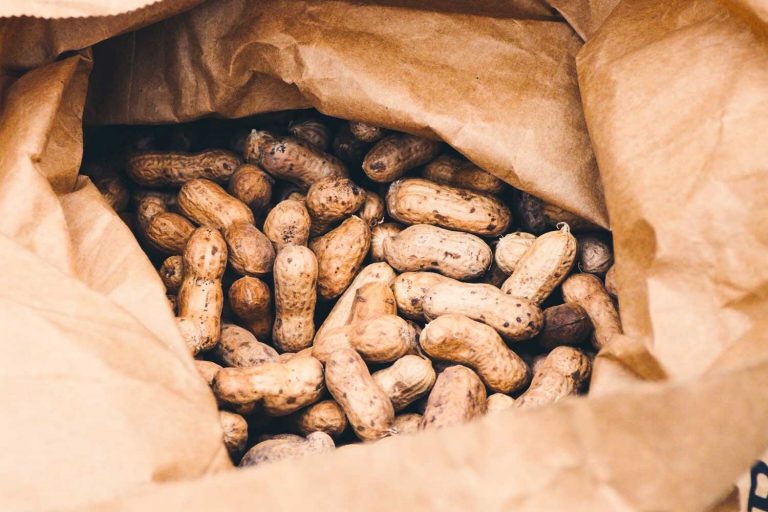Often enough, you get carried away asking about whether you can give your dog something, rather than asking how that something can benefit your furry friend. For example, you likely find yourself more inclined to search, “Are peanuts bad for dogs?” rather than, “Are peanuts good for dogs?”
It makes sense. I do it too.
Us dog owners want to know if we can give our pup a food before we know the food’s benefits. But sometimes the best way to know whether or not to give your dog a food is to read about the food’s benefits.
Can Dogs Have Peanuts?
Most nuts for dogs are toxic or hard to digest, but the peanut is not, which makes it the perfect option for some nutty, puppy nutrition.
Nuts like walnuts, almonds, and pecans contain dangerous toxins and are difficult to digest, while pistachios and macadamias are too rich in fats for our furry friends and can cause upset stomachs and pancreatitis.
Lucky for your pup’s taste buds, the peanut is easier on your dog’s tummy and doesn’t contain any toxins or overly-rich fats.
Are Peanuts Bad For Dogs?
We know dogs can’t have most nuts, but they can certainly have peanuts. Peanuts are not bad for dogs so long as they do not contain added salts or sugars. The kind of peanut you want to feed your dogs is an organic, raw, and roasted peanut. A peanut that has no added salt, sugar, or sweetener.
While dogs tend to love peanuts, some pups might be allergic. If you are feeding peanuts to your pup for the first time, give them only one or two peanuts. Then, check for any signs of a peanut allergy like itching of the face and body, or coughing.
Are Peanuts Good For Dogs?
Absolutely! Peanuts are filled with proteins, and when it comes to your dog’s dietary health, it’s all about the proteins baby. Proteins aid young pups in their growth (it’s why puppies require a diet higher in protein than adult dogs), helps older dogs recover from physical exercise and daily activity, and also promotes good health.
How Are Peanuts Good For Dogs?
Arginine and histidine are the two primary proteins in peanuts and they both boast a variety of health benefits.
Inside the body, arginine is turned into nitric oxide, which is a powerful neurotransmitter that relaxes blood vessels, improving blood circulation, and improving blood flow in the heart’s arteries.
Histidine turns into histamine inside the body and is useful in fending off blood-related diseases like anemia, and inflammatory reactions like allergies and arthritis.
Don’t forget the peanut’s healthy fats, vitamins, and minerals! Peanuts contain a healthy amount of monounsaturated fats. These are the good kind of fats like the ones you find in fish and avocado. Monounsaturated fats help with weight loss, inflammation, and reduce the risk of heart disease. Along with fats, peanuts are high in vitamins B and E.
Vitamin B helps boost your dog’s energy and metabolism. Vitamin E helps prevent heart disease, lower bad cholesterol, and improve brain and skin function. In particular, vitamin E may help protect your dog from doggy Alzheimer’s: a cognitive disorder that harms your dog’s brain function.
Peanuts also contain resveratrol: an antioxidant that has life-extending properties. Resveratrol, a nutrient naturally produced in plants in response to injury, helps plants fight off bacteria and fungus. When consumed, resveratrol reduces your dog’s risk of heart disease.
Resveratrol also possesses anti-cancer and anti-aging properties.
Now, I think you know the answer to the question, are peanuts good for dogs?
In Conclusion, A Chart
Want to impress your fellow dog owners with your knowledge of peanuts and their health benefits? Well, here’s a simple chart that’ll allow you to do just that:

(Source: Petsutra)













